PERIOD CRAMPS: Why Am I Cramping A Week Before My Period?
Why am i cramping a week before my period?
Menstruation, also known as periods, is a natural phenomenon that occurs every month, where a woman bleeds through her vagina. The ovaries release an egg every month for it to get fertilized and the uterus is prepared for the possible implantation of the zygote by thickening the uterine lining with blood to allow the egg to implant in this cushioning.
All of it happens when a complex array of hormones play their role to control this cycle to get a woman pregnant. But when the fertilization of an egg does not occur, the uterine lining is shed along with the unfertilized egg in menses and a new cycle begins.
Why am i cramping a week before my period? uterus tightening and relaxing simultaneously, which causes us the gentle to sharp crumps. While this occurs, a synthetic called “prostaglandins” is discharged this builds the force of the compressions. Along these lines, serious issues are an indication that your prostaglandin levels are excessively high
Why do I get period cramps?
You get cramps when muscle contracts and you feel it as a dull ache in that body part. In women, most cramps are related to their periods because the uterus contracts to shed the blood out of the vagina, and this occurs in almost 50% of women having their periods. Though having cramps is sometimes a reminder of the incoming periods, women up to 15% abhor these cramps as it can severely hamper their daily routine to the point that they are unable to perform their everyday tasks.
This is because the membranes in the fat-storing cells of the uterus make large amounts of a chemical called prostaglandin that is released when the cells break down during menstruation and the released prostaglandin mediates pain and inflammation, causes the blood vessels to constrict, muscles to contract which causes the cramps, plus it clots blood, too.
Cramps usually happen a few days before the periods start and arr very troublesome. Also, for unexplained reasons, some women tend to make more prostaglandins than others, which is why their cramping is more severe in intensity. In worse cases, cramps can occur because of any disease in the female reproductive organs. This may include:
- Pelvic inflammatory disease: this is an ascending infection of the female reproductive tract that can cause mild to severe cramping depending on how severe the infection is. The pain from this infection lasts for the entire cycle.
- Endometriosis: this is a condition where the uterine tissues start to grow on abnormal sites, such as the ovaries, fallopian tubes and the other linings of the uterus. In endometriosis, the duration of pain is unique to it. The cramping and the lower abdominal discomfort is most during the time of the periods and reduces during the other time of the cycle.
- Fibroids: it is a benign growth found in the uterus that can also cause abdominal discomfort and cramping. It is usually resected as a treatment option.
- Stenosis: stenosis means narrowing of the blood vessel. And if this occurs in the vessels of the cervix or the uterus then the intensity of the cramping increases. It can also cause scarring of the tissues and fewer hormones will reach the organ.
Related:Different Period Blood Colors: What it Means for Your Health
Cramps can occur otherwise as well. For instance, a woman may have cramps when:
- she got pregnant. This is because the egg is implanted in the uterus and it is normal for you to experience slight cramping and spotting, as well.
- In other situation, when a woman has a miscarriage, she would experience mild to severe cramps as a result of the uterus trying to expel all the tissues of the conception. In some women, cramps decrease in intensity as they age or after the birth of their first child, but in the rest of them, the cramps may continue to occur for the rest of their lives.
Why am i cramping a week before my period- Cramping before periods:
Cramps appear as a part of premenstrual syndrome and the duration for it can vary from women to women. Some women can experience cramps as early 2 weeks before the periods or as late as 2 days before the periods. The phenomenon involved is the same. This all happens due to the release of the prostaglandins.
Cramping after periods:
Your cramps may continue a few days to a week even after your bleeding has stopped. This happens for a few reasons:
- All the blood from the period has not been expelled from the uterus, and the uterus is still trying to get all that blood out.
- An imbalance of the hormones can cause a change in the uterus and the cramps would increase in this situation.
Related: I Feel Like I Have My Period But No Blood-15 Reasons Why Got Period Symptoms But No Period
What are the symptoms of cramping?
Every woman knows her cramps all too well, but for those who do not know, cramps can cause:
- Lower abdominal ache
- Feeling of heaviness
- Lower abdominal pain that extends to the lower back or the thighs
- Nausea or vomiting
- Diarrhea
Related: CHANGES IN MENSTRUAL CYCLE AGE WISE
How can I relieve my cramps?
Period cramps are a nuisance for all women and the first thing you look for are the ways to get rid of it or reduce it. Luckily, there are plenty of ways for you to relieve your cramps and they do not even take much effort.
- Hydration is key here. Keeping hydrated not only helps ease your cramps but maintains your good health overall. Drinking loads of water subsides the bloating and reduces symptoms related to it. You need to drink at least 8 to 10 glasses of water each day. Some women also experience diarrhea and vomiting during this time which is why it becomes even more necessary to replenish the lost water. You can add flavors to your water to make it drinkable and increase your fluid intake. On the other hand, you will have to stop taking additional salt as salt causes water retention and further exacerbate bloating. Also, you will have to cut down on your water intake. You can also try taking ginger tea or chamomile tea. They work as an anti-inflammatory and reduce cramps during menstruation by decreasing the levels of prostaglandins. Taking a pinch full of fennel before you get your periods is also a proven way to reduce uterine contractions.
- Diet is known to help ease the symptoms, and a diet rich in berries such as cherries, blueberries, strawberries, green vegetables like spinach and other green leaves, fruits and good fats from fish like salmon helps in subsiding inflammation and boosts health. While taking food rich in unhealthy fats and sugary compounds can cause serious health effects. Avoid taking refined products, salty food, alcohol, caffeine and fried stuff. A healthy diet will reflect on your overall health and taking such a diet is necessary for you not just in your periods but the entire month.
- Doing light exercises regularly releases endorphins which instantly help in making you feel better. Exercises like breathing exercises or stretching exercises give you peace in your mind and release the tension in your muscles or you can continue with all sorts of exercises you do routinely.
- Use a heating pad to relieve the cramps or take a good hot bath. Hot water helps release endorphins and serotonin which are happy hormones and can provide you with instant relief.
- Give your body the rest it needs. If you have been resting properly in your recent time, then it might be the best time to take a break from your routine work and let your body rest and recover from all the stress. Rest eventually gives your body the time to pull through all the tiredness and tension.
How To Shorten Your Period – Very Effective Natural Ways
References:
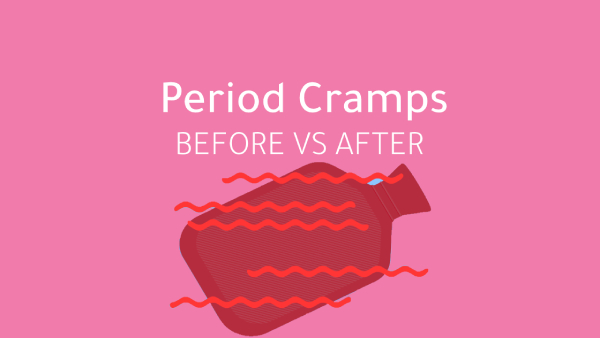
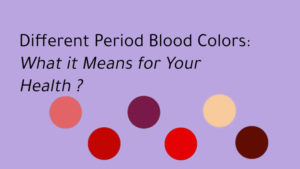



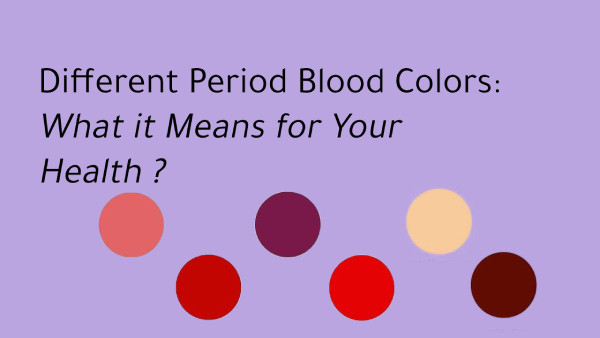
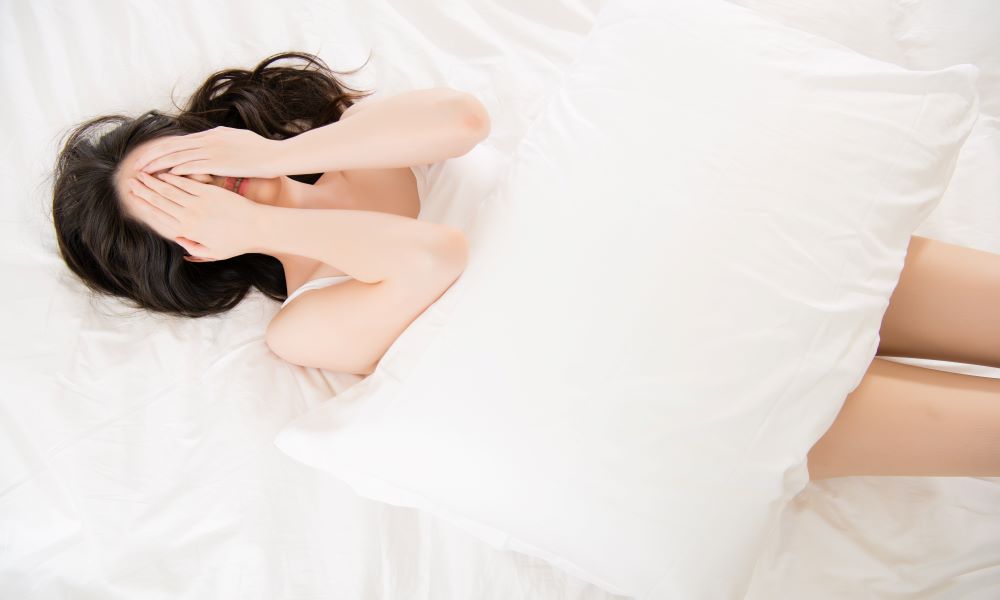
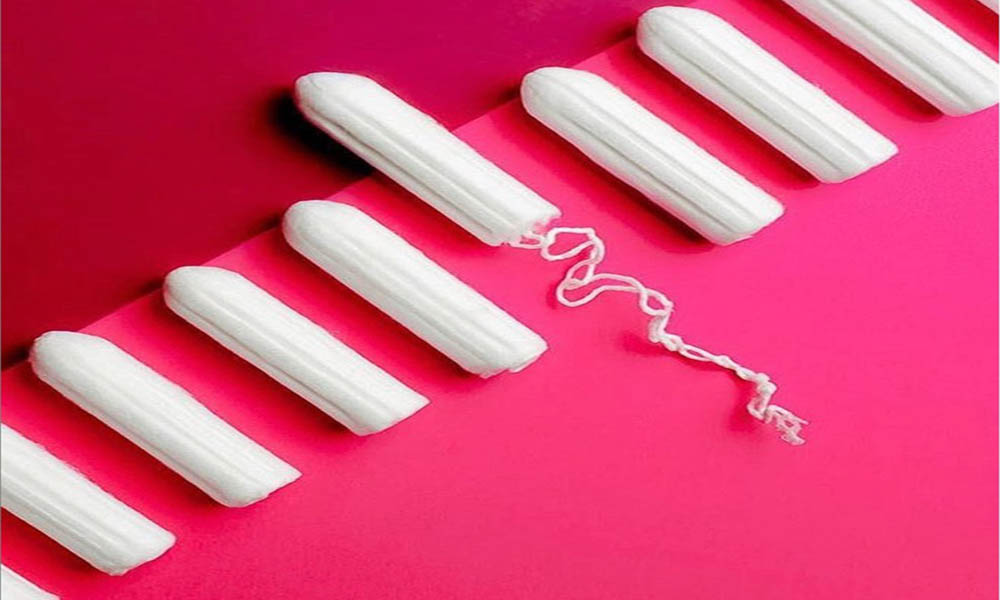
2 Replies to “PERIOD CRAMPS: Why Am I Cramping A Week Before My Period?”